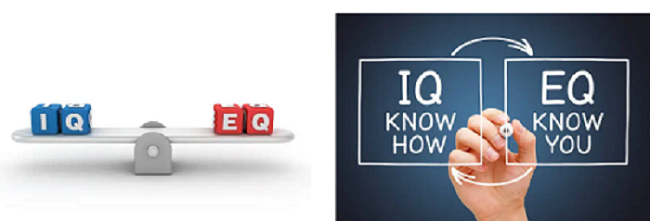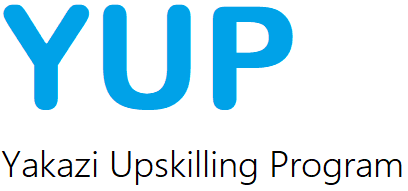Intelligence Quotient (IQ) vs. Emotional Intelligence (EQ)

Intelligence Quotient (IQ) vs. Emotional Intelligence (EQ): Why They Aren’t Widely Used in Hiring and the Potential to Change That!
Intelligence Quotient (IQ) and Emotional Intelligence (EQ) are both crucial metrics that can provide deeper insight into a person’s potential. However, despite their value, these metrics are not as widely utilized in the hiring process as you might expect. Employers typically prioritize resumes, technical skills, and traditional interviews, but by overlooking IQ and EQ, they may be missing out on candidates who could truly excel in their roles. So, why are these measures underused, and how could platforms like Yakazi shift the hiring landscape?
IQ: The Cognitive Measure of Intelligence
IQ tests measure cognitive abilities, such as logical reasoning, problem-solving, memory, and linguistic proficiency. These skills are valuable in roles that require quick thinking, analysis, and decision-making. A higher IQ can signal that a candidate will perform well in tasks that demand intellectual rigor.
But while IQ is an important predictor of success in certain tasks, it doesn’t capture everything. It doesn’t measure a person’s ability to manage emotions, interact with others, or handle stressful situations, skills that are essential for most roles today.
EQ: The Emotional Measure of Intelligence
Emotional Intelligence (EQ) is all about understanding and managing emotions, both your own and others’. It includes self-awareness, empathy, social skills, and emotional regulation. Employees with high EQ tend to navigate workplace dynamics with ease, communicate effectively, and maintain composure during challenges.
Despite the increasing importance of EQ, it remains difficult to measure reliably in many hiring processes. While cognitive tests like IQ assessments are structured and widely available, assessing emotional intelligence often requires nuanced and context-specific evaluation, which can be harder to implement.
Why Aren’t IQ and EQ Widely Used in Hiring?
The main reason IQ and EQ aren’t central to the hiring process is that traditional methods like interviews and resumes remain the norm. These methods often focus more on past experience and technical expertise rather than assessing the whole person, their cognitive and emotional skills.
Another challenge is the difficulty and cost involved in administering thorough IQ and EQ assessments. They require specialized tools and expertise, and many employers lack the resources or knowledge to properly implement them.
How Yakazi Is Helping to Change This
Enter Yakazi. This platform is helping bridge the gap between traditional hiring practices and more holistic assessments. By integrating both IQ and EQ evaluations into the recruitment process, Yakazi makes it easier for employers to gain a well-rounded view of potential candidates. Rather than relying solely on qualifications or interviews, Yakazi enables companies to assess cognitive abilities alongside emotional intelligence in a streamlined, efficient manner.
What’s unique about Yakazi is its ability to offer data-driven insights into both IQ and EQ, giving employers a clearer picture of how a candidate might fit into the dynamics of their workplace. In doing so, Yakazi helps companies identify candidates who are not just technically proficient, but also emotionally intelligent and adaptable, critical traits in today’s team-oriented, fast-paced environments.
With Yakazi, employers can make more informed decisions, leading to hires that are well-suited for both the technical and interpersonal challenges of their roles. This approach not only improves hiring outcomes but also fosters stronger, more cohesive teams in the long run.
Conclusion
IQ and EQ offer powerful insights into a person’s capabilities, but they are often overlooked in favor of more traditional hiring metrics. However, platforms like Yakazi are making it easier for employers to incorporate these critical measurements into their recruitment strategies. By doing so, they can build teams that are not only highly skilled but also emotionally attuned and capable of thriving in dynamic, collaborative work environments. In today’s competitive landscape, this holistic approach could be the key to finding the best candidates and driving organizational success.

